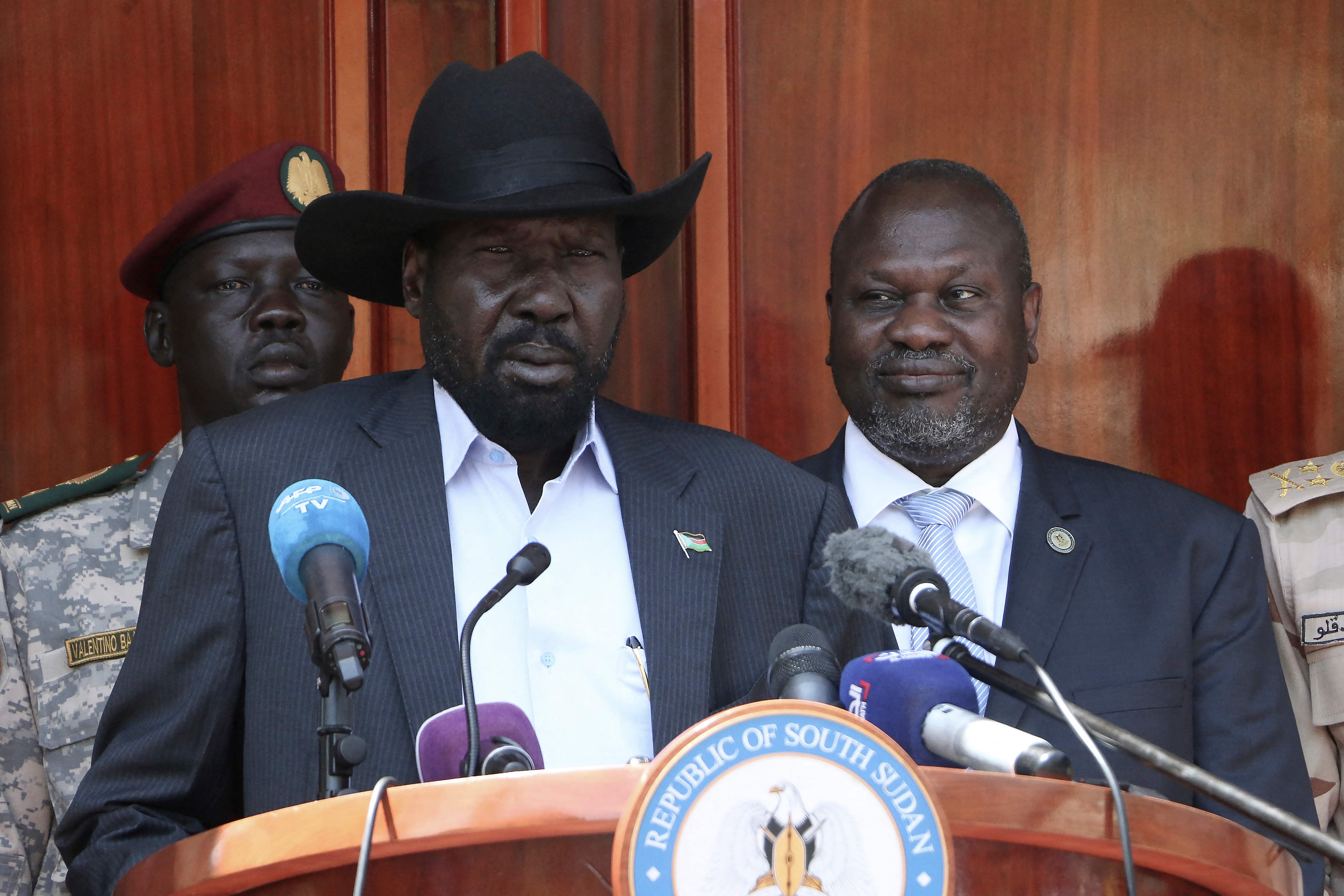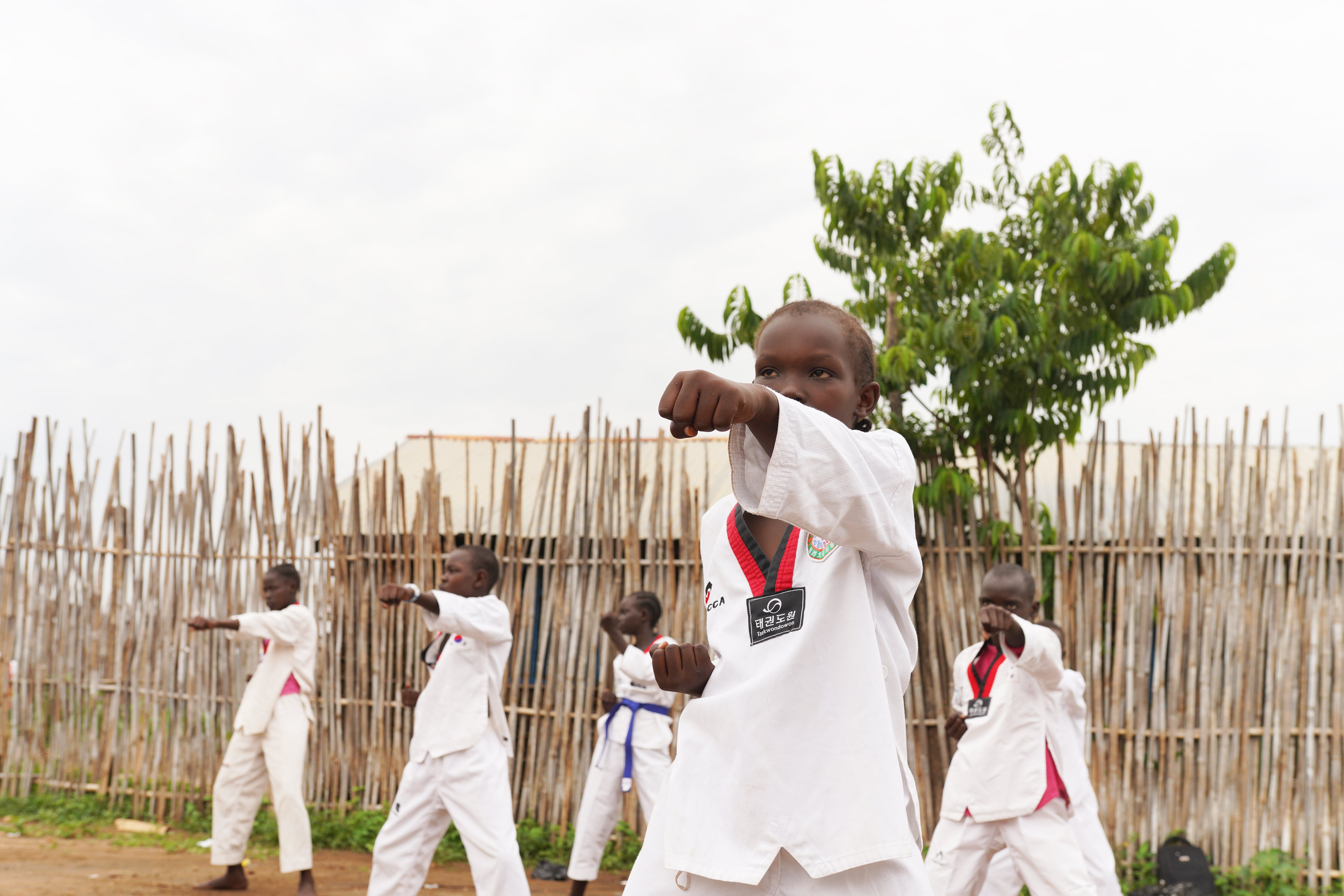South Sudan ten years on: Serious challenges remain after a decade of conflict and hardship
A period of violence and instability has left 7.2 million people in the country with acute food insecurity and 1.62 million people internally displaced

South Sudan’s first ten years as an independent nation have been dominated by civil war and ethnic violence, a far cry from the optimism surrounding its birth.
A decade ago, the world’s youngest country was in a celebratory mood, having fulfilled its long-held desire for autonomy, following its split from Khartoum. At midnight on 9 July, thousands of South Sudanese poured out into the streets of the capital Juba to mark the dawn of their nation.
The country’s separation from the north took place six months after an independence referendum in the south returned a conclusive verdict, with more than 98 per cent of votes cast in favour of it.
Nyagoah Tut Pur, who was living with her South Sudanese family in Kenya at the time, recalls her sense of elation. “The feeling of joy and hope were unparalleled. I don’t think I had ever felt so thrilled and excited,” she says.
Although she had not grown up in the country, she was intimately acquainted with its bid for freedom. “A lot of South Sudanese thought they were part of the liberation struggle simply because it was the only thing we heard about in our homes,” she explains.
Like many others in the diaspora, Ms Tut Pur soon headed to the new nation, keen to help it find its feet. She first worked as a paralegal at the Ministry of Justice, before becoming an advocacy officer at the South Sudan Law Society, a civil society organisation.
However, things in the country quickly took a sour turn as members of the elite jostled for power. This culminated in Salva Kiir, the South Sudanese president, dismissing his deputy Riek Machar and the rest of his cabinet in 2013. He later accused Mr Machar and others of plotting a coup.
There was a sense that this was the destination. I don’t think there was a sense of how to build a state or of the steep road ahead. It felt like they thought the hardest part was already done
In December of that year, civil war broke out when the ruling Sudan People’s Liberation Movement (SPLM) splintered. The subsequent fighting, largely along ethnic lines, killed 400,000 people and displaced millions. Massacres and famine stalked the land.
Ms Tut Pur, who now works as a researcher for Human Rights Watch (HRW), remembers the thoughts of those around her when the hostilities began. “For the first two months, the sense was that it would blow over. But then it kept going and it became much more brutal, much more difficult to address. The abuses became much more shocking.”
After protracted negotiations and failed ceasefires, a peace deal between Mr Kiir and Mr Machar was signed in 2018, resulting in the start of a power-sharing arrangement in February 2020.

Although this government has so far held, South Sudan continues to struggle. A decade of violence and instability has left 7.2 million people in the country with acute food insecurity and 1.62 million people internally displaced, with another 2.3 million refugees in exile, according to the latest UN data.
Joshua Craze, a researcher and writer on South Sudan, believes the 2018 accord has in some senses masked the reality on the ground, where violence is commonplace in states like Jonglei.
“There has been an increase in violence year-on-year since the peace agreement. The violence has just been re-coded as inter-communal violence so that the international community can pretend it is not political and the peace agreement is holding,” he tellsThe Independent.
NGOs agree that the country’s problems are deep-seated. Last year, South Sudan was beset by “conflict, security forces’ violations, entrenched impunity, and a lack of respect for rule of law”, a recently published HRW report found.
Alan Boswell, the Crisis Group’s senior South Sudan analyst, tells The Independent that ten years ago there was an issue with the mindset of those in power. To him, the nascent country’s elite were not ready for the scale of the challenges that awaited them ten years ago.
Referring to independence, he says: “There was a sense that this was the destination. I don’t think there was a sense of how to build a state or of the steep road ahead. It felt like they thought the hardest part was already done.”
One of the early difficulties the government faced was an oil dispute with Khartoum. After the birth of the breakaway state, South Sudan and Sudan disagreed about the fees the former should pay the latter for pumping oil across the border and on to the international market. In protest, Juba halted production and its pumps lay idle for more than a year, leading to a dramatic plunge in national revenue and large-scale borrowing.
The civil war came shortly afterwards. Although Mr Boswell believes it was not “inevitable”, he says the elite failed to comprehend the delicate make-up of their new country. “I don’t think they appreciated just how fragile the situation was and how easily the house of cards could collapse. There was a sort of hubris involved.”

The fighting led to a “re-Balkanising of the country”, as different ethnic and community groups tried to outdo one another in an internal arms race, he adds. Given this picture, it is safe to say there are plenty of potential sparks for future conflict.
South Sudan’s first decade has undoubtedly been tough, but could the next ten years offer a viable path towards peace and stability?
For Mr Craze, the probable answer is no. “South Sudan’s most likely future is that the international community continues to legitimize an increasingly desperate elite, which has intermittent violent feuds amongst itself, and has little legitimacy in the rest of the country.”
“It won’t be roses and butterflies,” Ms Tut Pur says, envisaging the situation in 2031. However, she hopes violence retreats so attention can turn to how best to deliver social change. To make this happen, the current “deficit of trust” between leaders and between communities needs to be addressed, she notes.
Some suggest the country’s younger generation could provide solutions, once the old guard dies off or is replaced. Ms Tut Pur believes this notion is too simplistic, as both demographics are affected by the same ethnic and political divisions. But this doesn’t always have to be the case, she says. “Maybe the generation of my children’s children will inherit a different, better country.”
Corruption and reliance on international aid need to stop, Ms Tut Pur argues. As things stand, much of the government’s annual budget is spent on the security sector, while only a few per cent of it goes towards education and health, requiring NGOs to fill the void.
“Ending the reliance on aid starts with ensuring the oil wealth is put into the right places and is reinvested into communities, rather than disappearing in the halls of the Central Bank and the Ministry of Finance and the oil companies,” Ms Tut Pur says.
Join our commenting forum
Join thought-provoking conversations, follow other Independent readers and see their replies
Comments